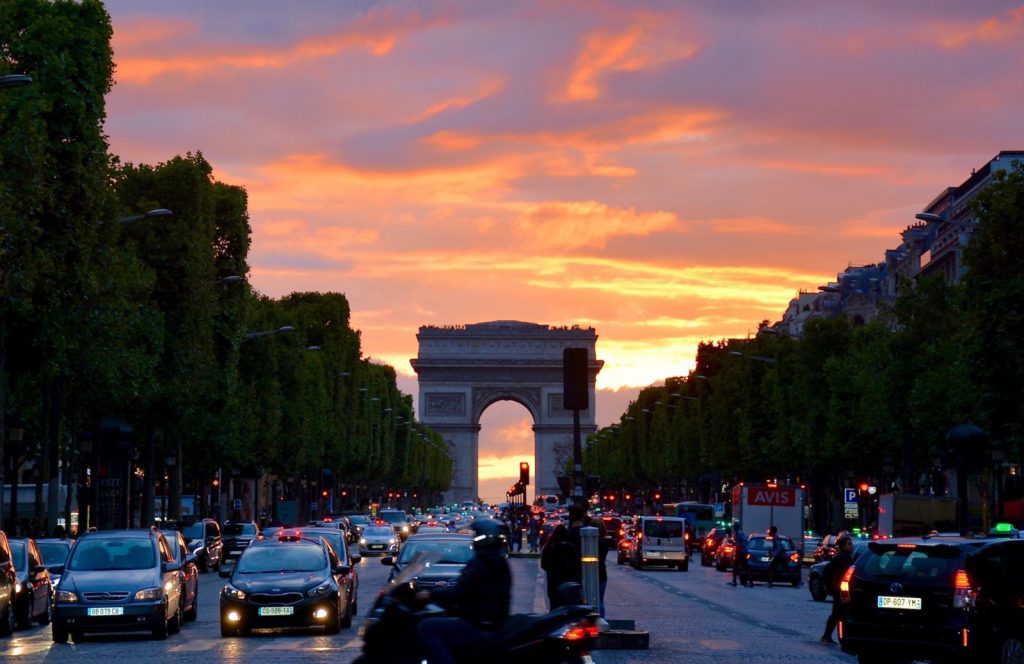
Published February 23, 2018
When France’s National Assembly passed a rule last month banning members of parliament from wearing or displaying religious symbols, many shrugged that it was in keeping with the country’s long tradition of strict state secularism. Instead, the ban — or rather the radical thinking behind it — has become a major obstacle to peacefully integrating immigrant communities.
In supporting the new ban, former prime minister Manuel Valls insisted it was the natural continuation of a long tradition of church and state separation in France. Valls’s view represents the consensus view of French political and cultural elites. It is also demonstrably false.
Through modern French political history, including after the 1905 law establishing the separation of church and state, members of the French National Assembly have displayed religious symbols; indeed, through much of that history, it never occurred to anyone that this could contradict secularism in any way.
Prominent post-war French political figures included Roman Catholic priests, who sat in Parliament in their traditional cassock. Abbé Pierre, a Franciscan monk who topped polls for the most admired public figure in France for his humanitarian work for decades until his death in 2007, started out in public life as a member of the National Assembly and never parted from his religious garb. So did Father Félix Kir, a highly colorful figure (yes, the cocktail is named after him) who was never far from center stage in French political life for over two decades. Said Benaisse Boualam, representative of then-French Algeria, sat in traditional Berber robes and turban, claiming the garb as a symbol of his Muslim faith. And yet he was elected four times to the vice presidency of the National Assembly.
The 1905 law ended public subsidies for religious institutions, but instituted no legal or cultural rule against public expression of religious values. So, why are we now told differently?
The answer is obvious: Over the past few decades, millions of people of Muslim faith or Muslim background immigrated to France. It is only then that this novel understanding of secularism emerged. The myth that state secularism has always mandated such rigid interpretations is convenient: If there are problems with French Muslims in France, they can be blamed on their reluctance to embrace the sacred rule of secularism.
Measuring French anti-Muslim bias is hard, in part because it is tricky to separate it from other forms of bias, and in part because of a strong French taboo against social studies of religion. In 2015, however, researchers from Institut Montaigne, a centrist think-tank, and one of the very few French institutions to care about the question, found a clever way to measure anti-Muslim bias and isolate it from racial or xenophobic bias, by applying to job openings with fake resumes from fictional applicants.
The personas they created for the applications were all Lebanese; only the applicant’s first name credibly signaled his or her religious affiliation. Differences in response rates to these applications could therefore be plausibly ascribed to anti-religious, as opposed to ethnic or xenophobic bias. The results are eye-opening: Catholic applicants were twice as likely to get a call-back as Muslim applicants when CVs were identical in every respect except religious affiliation.
A 2013 poll by Harris Interactive — before the Charlie Hebdo and November 2015 terrorist attacks, before the refugee wave, which further inflamed tensions — on French people’s views on religious communities gave astonishing results: 73 percent of respondents said they have a negative view of Islam, 90 percent said wearing the Islamic headscarf is “incompatible with life in French society,” and 63 percent think praying five times a day is also incompatible. If French people’s problem with Islam was about secularism, Roman Catholic nuns who wear a veil should also be deemed “incompatible,” and yet a majority of respondents in the same poll had a favorable opinion of Catholicism.
The phenomenon is largely unconscious, but in practice the revisionist French dogma of secularism translates into institutionalized bigotry. The all-too predictable result of this hypocrisy is a vicious cycle of mutual radicalization.
Since the mid-2000s, the proportion of Muslim women electing to wear the Islamic veil has been markedly increased, according to work by the French sociologist Raphael Liogier. No mystery there: The infamous bill banning the Islamic headscarf in schools passed in 2004. The bill’s goal was to dampen public expressions of Islam by turning schools into safe spaces, and it has achieved the opposite. And yet no noteworthy figure in French politics contemplates reversing or even relaxing it.
The problems of Muslim integration are much broader than the obstacles thrown up by French secularism, of course. But the secularist mantra stifles public debate and prevents progress on the other dimensions, whether socioeconomic or cultural. All of which begs the question: Where is Emmanuel Macron? Earlier this year, his office announced he would give a landmark speech on secularism, before canceling. Macron, who has championed a new law that imposes tighter controls on immigration, has stayed silent on the religious garb rule passed by his majority, apart from signaling through background leaks to the press that he does favor a more lenient understanding of secularism — very small beer from a head of state elected with a mandate to boldly challenge the status quo.
The central domestic policy challenge of Emmanuel Macron’s presidency is making the French economy not only more dynamic, but more inclusive: one cannot go without the other, since France’s mass unemployment disproportionately hits underqualified French Muslims. Given the overwhelming evidence of anti-Muslim bias and labor market discrimination, it is hard to believe that tweaks to labor laws and taxes alone can achieve this; refusing to address the cultural issues that hold back integration is not only short-sighted — it endangers his entire legacy.
For a president elected on the promise that he would cut through the outworn pieties of French politics, a more inclusive ethos and ending the secularist myth should be a top item on the list.
Pascal-Emmanuel Gobry is a fellow at the Ethics and Public Policy Center.




